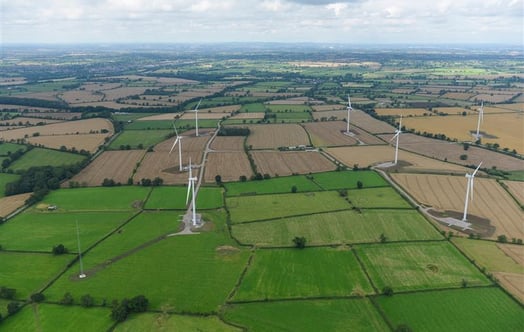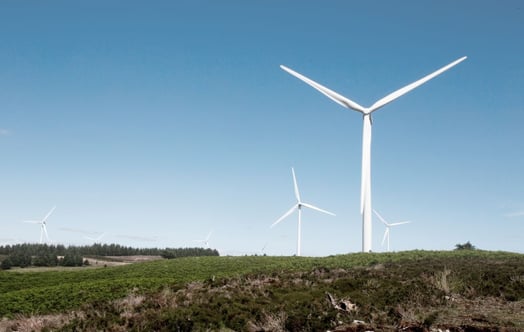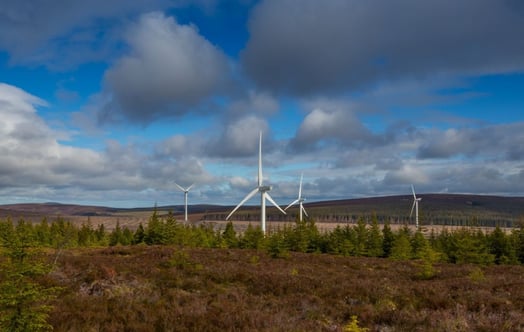
Climate change – can we overcome the bad news problem?
- Interactive event encourages attendees to help solve the ‘bad news problem’ and inspire action to fight climate change
- Hear from journalists, scientists, NGOs, business, and political representatives who will share their insights into climate reporting, misinformation, and public apathy
- Online attendance is free with the possibility to ask questions to the speakers
An interactive event hosted in Brussels on 24 September will shine a light on attitudes towards news reporting and stakeholder communication about climate change.
Bringing together leading figures from the worlds of news reporting and communications to discuss how the climate story is changing their work, the event will focus on three main topics about climate change reporting:
- Can we be balanced about climate change?
- Can we grow the publics for climate change news?
- Whose facts matter in the climate change story?
‘Bad news avoidance’ is fuelling a decline in news audiences1, while 80% of international press reports about climate change have been classed as negative2. It seems that people are turning away from stories about the greatest existential threat to humanity at the moment when informed reporting that leads to action are more important than ever.
At the same time, misinformation campaigns are spreading doubt about the truth of climate change communication or proposed solutions3. Research suggests that around the world, over three quarters of the population are concerned about false or misleading news about climate change4.
However, surveys also suggest a similar proportion of people agree that governments should take action to limit the effects of climate change5. In addition, data highlights that positive messaging is more effective at inspiring action than emphasising the consequences of doing nothing6.
Yet the Oxford Climate Journalism network report that people across all countries have relatively high interest in climate change news that incorporates solutions in its coverage5. In parallel, analysis shows how messaging which emphasises protecting ourselves and the next generation is more effective at inspiring action than emphasis on the consequences of doing nothing6.
On 24 September 2024, Vattenfall, one of Europe’s largest electricity and heat providers, will convene speakers from the worlds of journalism, politics, business, science, and NGOs at the Bibliotheque Solvay in Brussels.
Over the course of three sessions, they will discuss current perceptions of news about climate change, and how traditional and social media reporting can move audiences from feeling overwhelmed and despairing to being inspired to act.
Alexandra Borchardt, lead author of the European Broadcasting Union’s 2023 News Report “Climate Journalism that Works”, who will be speaking at the event, said:
“When it comes to communicating climate issues, facts alone are not enough to encourage action. Audiences engage more with climate news from voices they trust, but they also need to be given a sense of hope that they can do something about it in their daily lives.
“Climate communication should shift the narrative from solely focusing on conflict to a more constructive approach that highlights solutions, so I’m very excited to be taking part in this important event and to have the opportunity to learn from the experience of other communicators.”
Dr Mark Lee Hunter from the Global Investigative Journalism Network, who will be co-moderating the event said:
“Solid evidence points to increasing numbers of people who avoid disturbing news about climate change, the most critical issue we face today. Meanwhile, an unprecedented mobilisation is underway among news media to upgrade capacity and knowledge for climate coverage. The climate story is changing how we do news.
“This event will bring together a wide range of people and organisations involved in that shift. I urge anyone who considers themselves a communicator to register with us online and look forward to moderating a fascinating day.”
Åsa Jamal, Vattenfall’s Senior Vice President and Head of Group Communications said:
“Climate change is real, and widely perceived as the most serious threat to the world’s future. At Vattenfall we are committed to building a future where everyone can choose fossil free ways to move, make and live, but we also know that news around climate change can be overwhelming and have a negative effect on people.
“We want to facilitate a discussion by bringing together media scientists, NGOs, and representatives from politics and business to share and discuss their insights into these issues and look at ways to inspire us all into to taking positive action.”
Attendance online is free, with the option to submit questions to the panel via the chat function7. Sign up here to secure your place.
Notes to editors
- Digital News Report 2024 - Reuters Institute / Oxford University: ‘Around four in ten (39%) now say they sometimes or often avoid the news – up 3 percentage points on last year’s average.’
- Vattenfall/TNS Kantar report ‘The Conversation on Climate Change,’ p5
- Deny-Deceive-Delay-Vol 3 - Institute for Strategic Dialogue
- Reuters - ‘How we follow climate change’ report' - 2022, p.21 Fig 12,
- Potential Energy Coalition, “Later is too late,” Nov 2023, p.5
- Potential Energy Coalition, “Later is too late,” Nov 2023, p.7
- Questions submitted online will be moderated. Due to expected levels of interest, we do not expect to be able to submit all questions to the panel but will group questions by theme to try to answer as many as possible.
Conference agenda – Tuesday 24 September 2024 (all times CET)
09.45–11.15: Session 1 – Can we be balanced about climate change?
Various research findings confirm that how we discuss climate change matters. The words we choose in reporting the issues and in climate change policies themselves can make a significant difference. Meanwhile, navigating between neutrality and activism is becoming difficult for mainstream media. Will climate change alter the industry’s operating assumptions?
11.45–13.15: Session 2 – Can we grow the publics for climate change news?
Over the past years, traditional media have been hit hard. Overall trust and viewership for news is continuing its downward trend. Up to 40 percent of the audiences that have left tend to avoid news, because they find it too depressing. Who and where are the audiences for climate change news?
14.15–15.45: Session 3 – Whose facts matter in the climate change story?
‘Facts’ are now more disputed than ever. Whose facts are legitimate, and to whom has become a matter of faith. In practical terms: what constitutes "proof" for the publics of climate change communication?
Confirmed speakers
- Dr Mark Lee Hunter (Global Investigative Journalism Network) – Moderator
- Ulrik Hagerup (Constructive Institute)
- Dr. Lagipoiva Cherelle Jackson (Solutions Journalism Network)
- Kris De Meyer (UCL Climate Action Unit)
- Tom Brookes (Meliore Foundation)
- Alexandra Borchardt (European Broadcasting Union)
- Syed Nazakat (DataLEADS)
- Angelika Pullen (WWF)
- Sven Egenter (Clean Energy Wire)
- Emilia Diaz-Struck (Global Investigative Journalism Network)
- Mitali Mukherjee (Reuters Institute for the Studying of Journalism)
- Shereen Daver (climateXchange)
- Lars Tallert (Sustainable Journalism Partnership)



